How Hard is it to Learn Coding From Scratch? (5 Reasons It’s Not as Tough as You Think!)
How Hard is it to Learn Coding From Scratch? (5 Reasons It’s Not as Tough as You Think!)
Think Coding is Hard? Think Again! 🤔
But honestly, coding isn’t as tricky as it’s made out to be. With the right tools and resources, it’s doable—and fun. At some point, you’ve probably heard that learning to code is like learning a new human language or that it’s one of the hardest languages with the most jobs and the hardest skills to master. It’s easy to believe, especially if you’ve ever witnessed complex syntax or watched developers effortlessly write code. But let me share a little secret: coding isn’t as hard to learn as you think.
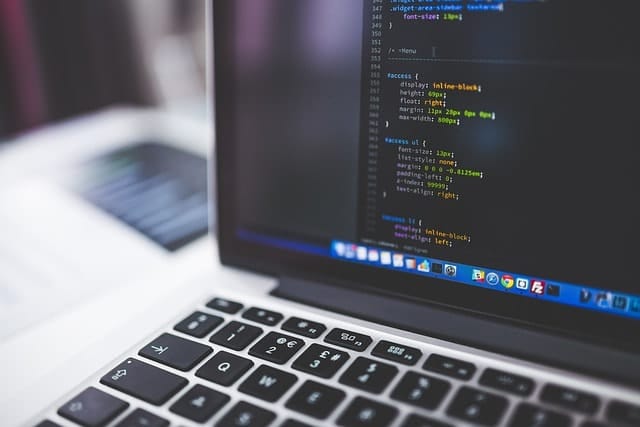
Let's see how we can tackle the myth that coding is hard to learn by exploring why it’s easier today than ever. Whether you want to dive into web development or computer science or learn coding skills for fun, this guide is for you. We’ll explore how online courses, supportive communities, and beginner-friendly programming languages can make learning programming enjoyable.
Let’s explore the five key reasons why learning to code is entirely doable – and maybe even fun!
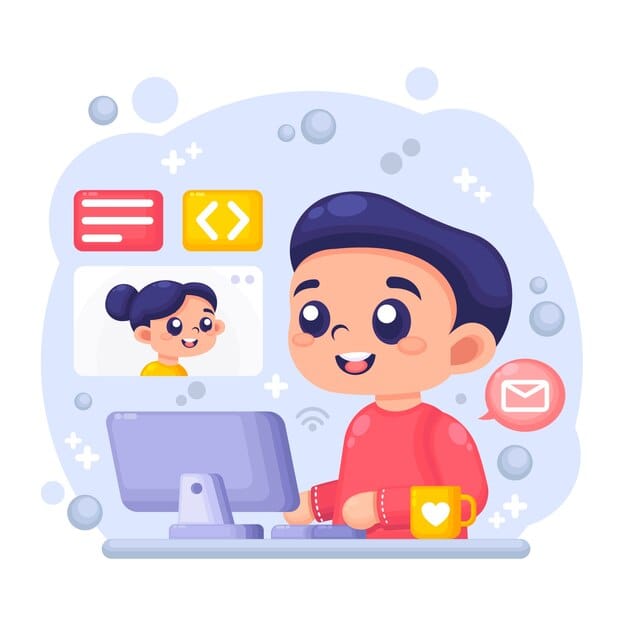
1. Start with Beginner-Friendly Programming Languages
When you think of programming languages that are hard enough, you might picture lines of complex code or fear that you must be a math wizard to succeed. But the truth about programming hard enough is that not all programming hardest coding languages are created equal, and some of the hardest coding languages are much easier for beginners.

Why is Python recommended to be the first language to learn?
If you are a programmer just starting out, Python is your best friend. Python is often considered one of the easiest coding languages to learn due to its simple syntax, which closely resembles English. It’s a language widely used in fields like data science, web development, and even software engineering, so learning Python can open up many job opportunities for programmers in the tech world.
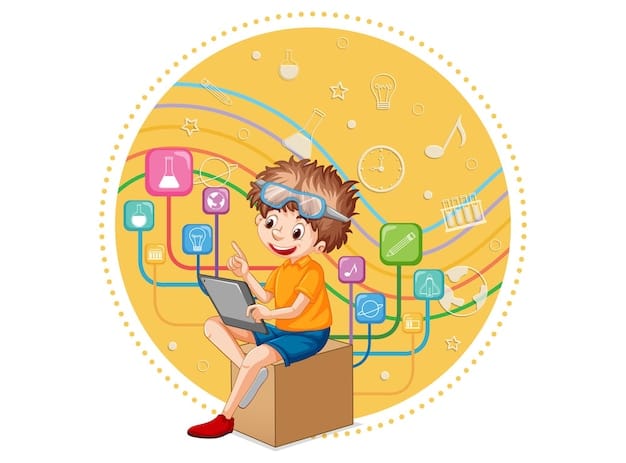
Unlike some more complex programming languages, Python allows you to focus on learning coding concepts without getting bogged down by confusing syntax. Whether you're a new coder building a simple app or a student exploring computer programming in high school, Python is a fantastic starting point.
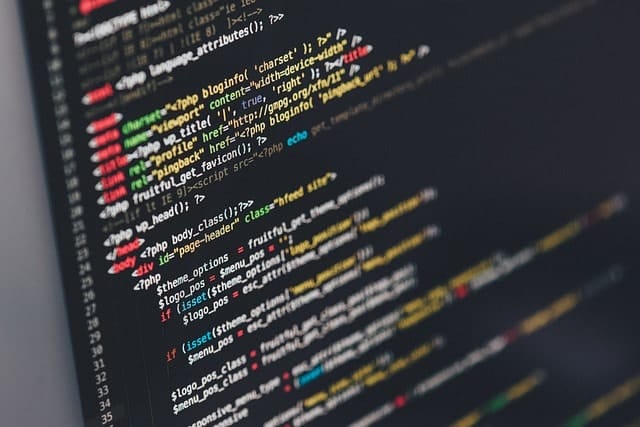
Other Programming Languages for Beginners
Apart from Python, there are numerous user-friendly languages, such as JavaScript, HTML (Hypertext Markup Language), and Scratch. These languages are great for web developers and those curious about and wishing to work with interactive websites. JavaScript acts as the brains behind the fleshing out of many dynamic website features. HTML is the part of the website that composes the base code behind most websites that web users surf through.
Even if you do not wish to become one, learning one programming language and many aspects related to quite a few such languages will provide a basic grasp of how websites and applications function, a very valuable skill in almost every profession.
2. Coding is hard? What if you figured out the "Right" Resources.
One of the gravest fears that torment a beginner is: How hard is coding? It is not hard at all once you have the right tools and guidance within reach. The internet holds a treasure trove of these online learning platforms that assist students in having a smooth ride on this learning journey. From total code novices to those brushing up on more advanced topics, some courses or tutorials will guide the learner.
Free and Paid Resources to Learn Programming
💡 Fun Fact: From online tutorials and programming books to various coding languages to boot camps high schools, there are resources for every learning style, human language, and budget.
- Codeyoungand Code.org: These platforms and online courses are ideal for beginners, especially younger learners. They make learning fun through interactive games and lessons.
- Coursera and Udemy: These platforms offer structured online courses taught by industry experts, providing clear learning paths from beginner to advanced coding skills.
YouTube: With countless coding tutorials, YouTube is a great free resource for learning about everything from web development to data structures.
- Coding boot camps: For those seeking a fast track to a new career in tech, boot camps like Flatiron School or General Assembly offer intensive programs for computer programmers that can get you job-ready in months.
These online resources are designed to make the learning journey smoother. Instead of guessing what you are coding hard to learn and how hard it is to know the code next, these structured pathways guide you step by step.
3. Build Projects, Solve Problems: Hands-on Learning
Learning to code is a lot like learning to code and solving puzzles. The more you practice, the better you get at writing code and problem-solving. But reading about coding isn’t enough. You must write code, experiment with it, and build real-world projects to understand it truly.
The Power of Real-World Projects
One of the best ways to learn programming is by working on real-world projects. You don’t need to be a seasoned developer to start building something. Working on small projects early on helps reinforce what you’ve already learned. Whether building a simple to-do list app, creating a personal website using JavaScript, or automating tasks with Python, every project helps you grow.
Platforms like LeetCode, HackerRank, and Codewars allow you to test your coding skills through fun challenges and puzzles. These help you practice coding hard and sharpen your problem-solving skills, which are critical for success as a software developer or data scientist.
Object-Oriented Programming and More
As you get more comfortable, you’ll encounter key concepts like object-oriented programming (OOP). OOP is used in languages like Java and C++, and it’s essential for organizing code into manageable, reusable parts. While this may sound complex, once you have a basic understanding of programming, you’ll find OOP can help simplify even large projects.
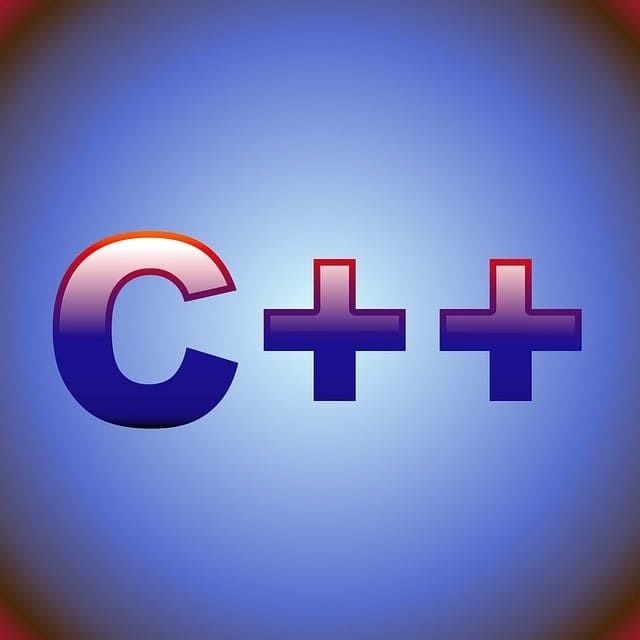
4. You’re Not Alone: Coding Communities and Forums
One of the biggest myths is that coding is a solitary activity. In reality, coders rely on collaboration, whether working in teams or participating in online forums. If you ever feel stuck or frustrated, there’s always help available.
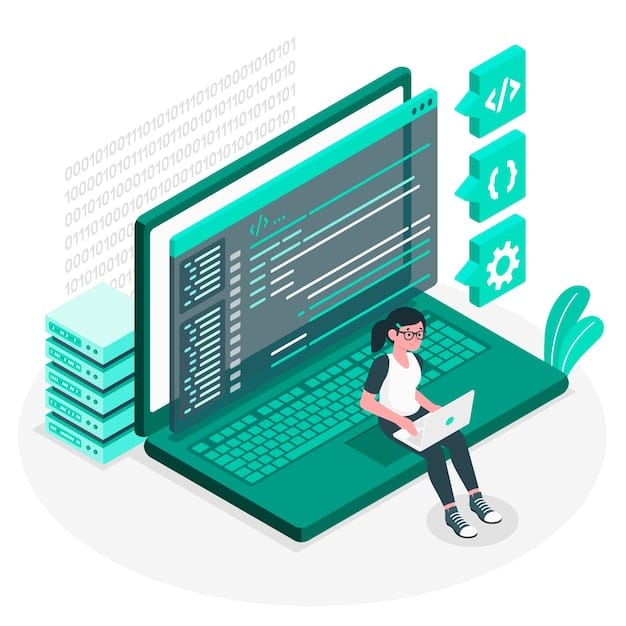
Communities for Every Coder
Platforms like Stack Overflow, GitHub, and Reddit are filled with experienced web developers ready to lend a hand. Whether you have a specific question about control structures or need advice on navigating complex syntax, there’s always someone willing to help.
These communities provide technical support and free resources and foster a sense of belonging. Coding can be tough, but sharing your journey of writing code with others becomes a lot more fun. Seeing other people’s code can help you learn different coding and problem-solving approaches.
5. Your Learning Path: From New Coder to Professional Developer
Starting from scratch can feel overwhelming, but remember – every coder was once a beginner. The beauty of coding is that you can learn at your own pace, and there’s no single “right” way to master it. Whether focusing on web development, exploring data structures, or diving into software engineering, your learning path in c language is uniquely yours.
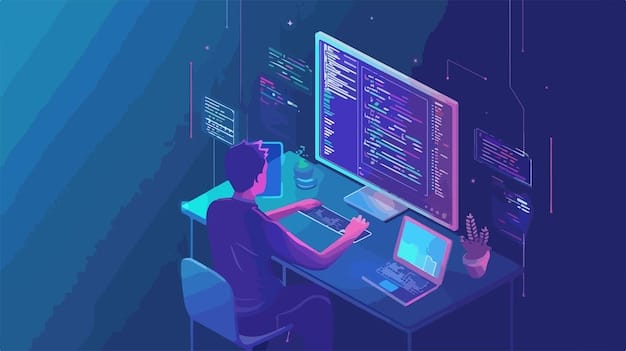
The Learning Journey: From Basics to Advanced
In the beginning, most students need to build a strong foundation. This includes understanding concepts like variables, loops, and functions, which you’ll find in almost every programming language. Once you’re comfortable with the basics, you can move on to more advanced topics like object-oriented programming, data structures, and algorithms.
One of the best parts of coding is that you’re always learning. Whether you’re a beginner or an experienced programmer, there are always new languages, frameworks, and tools to explore. For example, while Python may be a great starting language, you might later branch out into Java, C, or assembly language to tackle more complex tasks.
How Long Does It Take To Learn Programming?
If you’re aiming for a formal degree, a computer science program typically takes four years. This path deepens into programming languages, data structures, software engineering, and more. It’s designed to give you a comprehensive understanding of the field and prepare you for various careers in tech, such as becoming a software developer or web developer.
But not everyone needs to commit to four years of study. With the rise of online courses and online learning platforms, you can learn a programming language in as little as three to six months. Websites like Codeyoung and Codecademy offer interactive lessons that guide you through programming concepts, allowing you to write code quickly. Whether you're interested in web development oldest programming languages or data science, there’s a course tailored to your needs.
Coding Bootcamps: Fast-Tracking Your Learning
A coding boot camp is a fantastic option if you're ready to dive in and want a more intense experience. These boot camps last 6 to 9 months and are designed to immerse you in coding. You’ll focus on practical, real-world coding skills by working on projects with experienced developers. Bootcamps cover everything from basic understanding to advanced topics like object-oriented programming and web development.
Bootcamps are known for their hands-on approach, which is why so many programmers turn to them for a career change. Instead of spending years in a traditional program, a coding boot camp accelerates the learning process, allowing you to learn to code and be job-ready in under a year.
Does Coding Require Math?
Many people wonder, Does coding require math?" The simple answer is: not always. Most coding languages and projects don’t need advanced math skills. For example, suppose you're diving into web development or mobile app development. In that case, you're more likely to work with Hypertext Markup Language (HTML) or JavaScript, requiring little to no math. However, computer science fields like data science and machine learning may require some math background, especially in areas like statistics and algorithms.
That said, coding and math share a common foundation: problem-solving. Both require you to solve problems step-by-step, which means that even if you’re not a math whiz, having solid problem-solving skills will help you succeed in coding.
How Long Does It Take to Learn to Code?
Yep, here is the breakdown of what you can expect depending on your goals:
1. Learning the Basics (3-6 months)
If you’re starting from scratch, you can pick up the basics in 3 to months. You'll get comfortable with concepts like variables, loops, and functions during this time. You'll also write your first lines of code in beginner-friendly languages like Python or JavaScript, often considered the easiest coding languages to learn due to their simple syntax and readability.
2. Becoming Proficient (6-12 months)
To become proficient enough to build real projects, expect to invest 6 to 12 months. You’ll deepen your understanding of object-oriented programming, control structures, and data structures while working on real-world projects. By this point, you should feel confident tackling larger challenges, like building websites or apps and understanding how other programming languages work.
3. Mastery and Professional Development (1-2 years)
If you're pursuing a full career in programming, expect to dedicate at least 1 to 2 years to learning programming and mastering the craft. At this stage, you’ll have a strong grasp of software engineering principles, be proficient in multiple coding languages, and have completed enough projects to start applying for jobs. By now, concepts like version control, APIs, and programming hard languages like C language will be familiar territory.
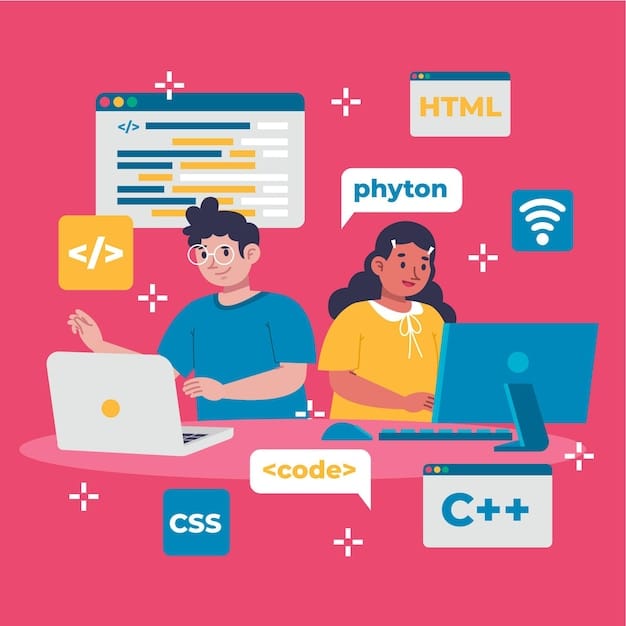
Easiest Coding Languages to Learn
If you’re new to computer programming, starting with languages with a more intuitive learning curve is best. Here are a few of the easiest coding languages to start with:
1. Python
Everyone says to start from this; it's easy and peasy.
Python is a programming language often recommended by most students as the first language for beginners due to its simple syntax and versatility. Whether you’re looking to learn about web development or dive into data analysis, Python’s readability makes it one of the most accessible languages to learn.
2. Scratch
Scratch is a visual programming language designed for younger learners that uses block-based coding. It’s a fun way for kids (and adults!) to understand programming concepts without worrying about typing out lines of code.
3. HTML/CSS
Though technically not considered programming languages, Hypertext Markup Language (**HTML**) and CSS are essential for web developers. They allow programmers and you to both code to create and style websites, making them perfect for anyone interested in web development.
How to Learn Coding Quickly
If you want to learn coding as fast as possible, you’ll need a combination of the right approach and dedication. Here’s how you can speed up the learning process:
1. Set Clear Goals
Whether you want to learn to code and build a website or become a data scientist or a software developer, setting specific, achievable goals will help you stay focused. Decide what kind of coder you want to learn to code and be—are you more interested in web development, data science, or game development?
2. Practice Regularly
Consistency is key to improving your coding skills. Even dedicating 30 minutes daily to writing code can make a huge difference over time. Frequent practice helps cement the programming concepts you've previously learned.
3. Use Real-World Projects
One of the best ways to learn quickly is by working on real-world projects. Apply what you’ve previously learned to build projects from scratch. This gives you hands-on experience and shows potential employers that you can solve problems with code. 4. Join Online Communities
Learning to code can be daunting, but you’re not alone. There are thousands of online forums and coding communities where you can ask questions, share projects, and get feedback from industry experts and experienced developers.
Programming as a Career
When people consider computer programming a career, they often wonder if learning programming is worth the effort. The answer is a resounding yes!
Coding opens the door to many opportunities, from becoming a web developer or data scientist to roles like software engineering and machine learning. And the demand for computer programmers is only growing. According to the Bureau of Labor Statistics, computer programming is set to expand rapidly over the next decade, offering high salaries and job security.
Programming also offers flexibility. Many software developers work remotely or freelance, allowing you to control your work environment and schedule. With the right coding skills, you can work anywhere in the world.
Conclusion:
Learning to code may seem intimidating, and you might wonder, "Is coding hard to learn? Or Is coding easy to learn? " However, with the right resources and mindset, coding is hard to learn, but only if you approach it without a plan. The good news is that plenty of free resources, online tutorials, and programming books make the learning-to-code process easier. If you’re ready to learn a new skill, there’s no better time to start your coding journey.
Here's the way: listen up!!
Start by picking one language like Python or JavaScript, sign up for an online course, and commit to your learning path. Coding isn’t just about understanding complex syntax or navigating advanced topics—it’s about problem-solving and creativity. Whether you want to learn to write code for fun or aim for a career change, coding will unlock a world of possibilities.
Codeyoung is the ultimate online platform for kids and beginners eager to dive into the world of coding!
✅With engaging courses in languages like Python and JavaScript, Codeyoung transforms learning into a fun adventure.
✅Students tackle real-world projects that boost their coding skills and enhance their problem-solving abilities.
✅With expert instructors and a vibrant community for support, Codeyoung makes it easy to embark on your programming journey.
Whether you aim to become a software developer or want to learn to code for fun, Codeyoung has everything you need to succeed! Know more about it, GET, SET, GO, and Book a Live demo now!!
FAQs: Answering Your Biggest Coding Questions
Is coding hard? How hard is coding for beginners to learn?
At first glance, coding might seem challenging, but it's just like picking up any new skill. With the right tools and some practice, anyone can grasp the fundamentals of coding. Remember that even seasoned software developers started from the same place you are now!
What is the easiest programming language to learn?
Many people find Python the most beginner-friendly programming language because of its straightforward and readable syntax. Scratch is also an excellent choice for younger learners or those who prefer a visual approach to coding.
How long does it take to learn coding?
The duration of learning coding varies based on the time you commit to it. You could begin creating small projects with regular practice in just a few months. Intensive coding boot camps can accelerate your learning, while online courses provide a more flexible schedule.
Can coding help with problem-solving?
Definitely! Learning to code enhances your problem-solving abilities. As you work through various coding challenges, you develop the skill to decompose problems into smaller, more manageable parts—an ability that proves helpful both in programming and everyday life.
Do I need to know advanced math to learn coding?
Not really. While some programming or computer science regions, such as data science or specific algorithms, may involve more math, most fields, like web development or app development, do not require advanced math skills.
Comments
Your comment has been submitted